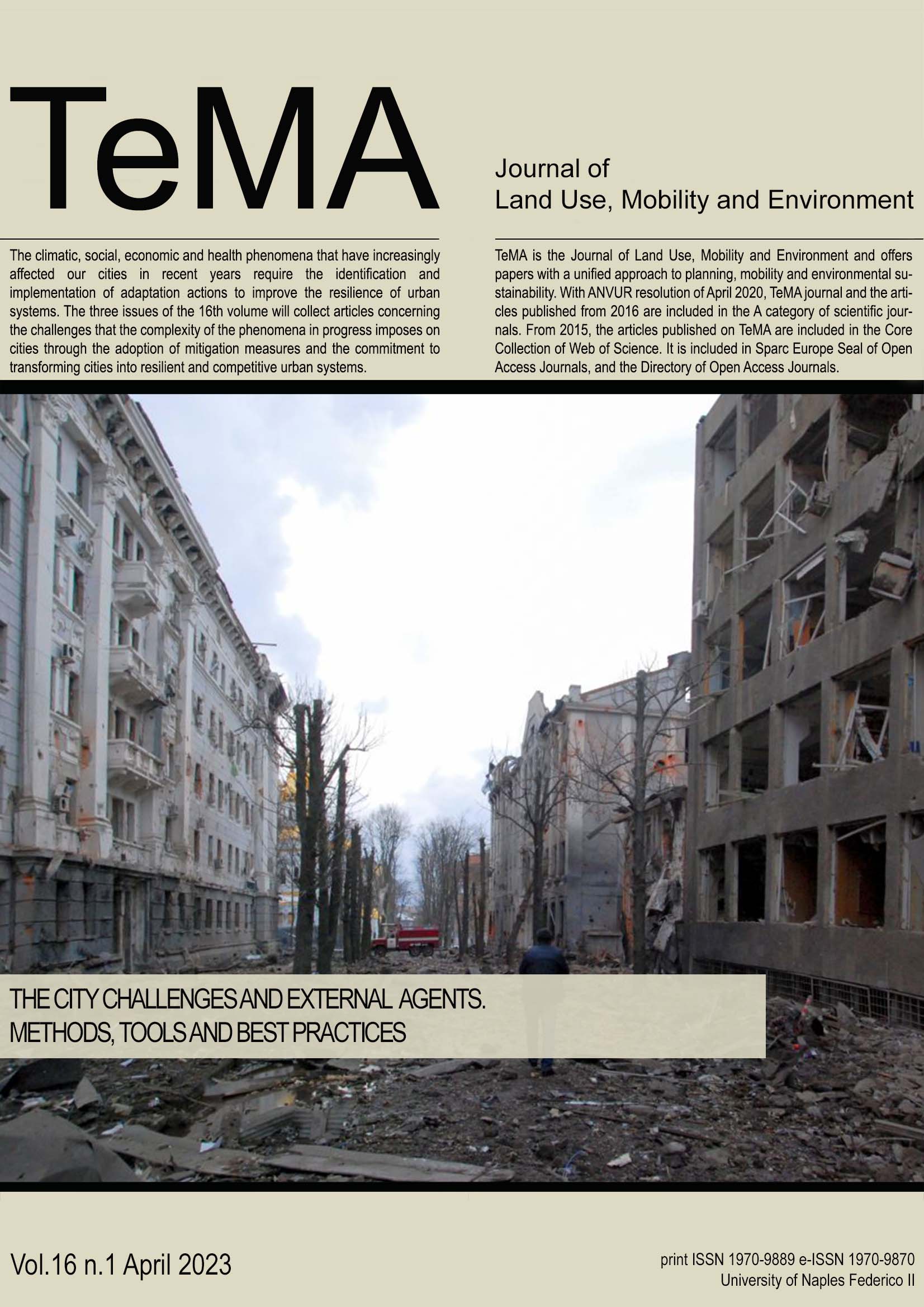The city challenges and the new frontiers of urban planning
Digital twins as tools of urban resilience: research and practices
DOI:
https://doi.org/10.6093/1970-9870/9392Keywords:
Digital twin, Technological digital innovation for urban planning, Urban resilience to climate changeAbstract
The exponential growth of the world population must deal with the limitedness of the planet and its resources. The challenge is even more difficult as by 2050 two-thirds of the world’s population will live in cities, urban ecosystems are becoming larger and more complex, and many other global challenges (climate, energy, health, ecological) require innovative answers in a very short time, with an integrated approach and in a medium-long and wide-ranging vision.
Within this complex framework: a multiple transition (digital, ecological, energy) is undelayable; the way of planning, designing, and managing cities is going through a phase of deep change; a new culture is emerging and spreading to improve informed and data-driven decision making.
Therefore, the article addresses the potential of new technologies, yet to be adequately explored in the fields of planning and design at different territorial scales, for better governance, sustainable development and quality habitats. It consists of three main sections, consistent with the methodology and the main steps of the ongoing research to which it refers. The first section focused on global challenges and on the potential of new technologies to make cities and territories more resilient and sustainable, in line with SDG 11 of UN 2030 Agenda. The second section addresses the theoretical aspects and implementation regarding the concept of urban resilience and the role of new digital technologies with reference to significant case studies in the EU panorama. The third and final section contains some concluding remarks on the limits and prospects of research for urban planning, territorial governance and management.
Downloads
Downloads
Published
How to Cite
Issue
Section
License
Authors who publish in this journal agree to the following:
1. Authors retain the rights to their work and give in to the journal the right of first publication of the work simultaneously licensed under a Creative Commons License - Attribution that allows others to share the work indicating the authorship and the initial publication in this journal.
2. Authors can adhere to other agreements of non-exclusive license for the distribution of the published version of the work (ex. To deposit it in an institutional repository or to publish it in a monography), provided to indicate that the document was first published in this journal.
3. Authors can distribute their work online (ex. In institutional repositories or in their website) prior to and during the submission process, as it can lead to productive exchanges and it can increase the quotations of the published work (See The Effect of Open Access)


